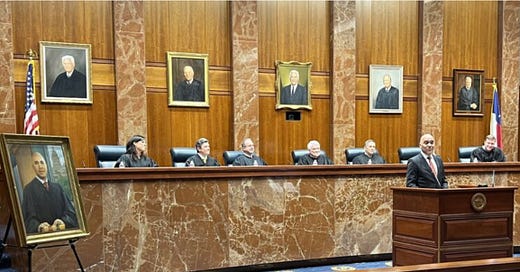LER No. 55 - Welcome Back! (First Monday Edition 09.09.24)
The Legal Ethics Roundup - your Monday morning tour of all things related to lawyer and judicial ethics with University of Houston law professor Renee Knake Jefferson
Welcome to Year Two of the LER!
Thank you for being here. Welcome to what captivates, haunts, inspires, and surprises me every week in the world of legal ethics. For many of you, we’ve started our Monday mornings together since August 2023. And what a year it has been:
53 Roundups (featuring 500+ Headlines & 100+ Reading Recommendations plus Ethics History, Reform Updates, Pop Culture, Trivia, Events & More) and 16 Bonus Content Posts
150+ Job Listings
1,000+ Subscribers From 47 States and 39 Countries
1,500+ Reader Views Weekly
The Year Ahead
As we enter our second year, my motivations for providing this FREE(!) resource remain the same as when I first launched it. It is not an exaggeration to say that never in the history of the United States has there ever been a greater need to understand the ethical duties of lawyers and judges and to hold them accountable to their professional obligations. Now more than ever the legal profession is in the headlines for questionable ethics, ranging from…



